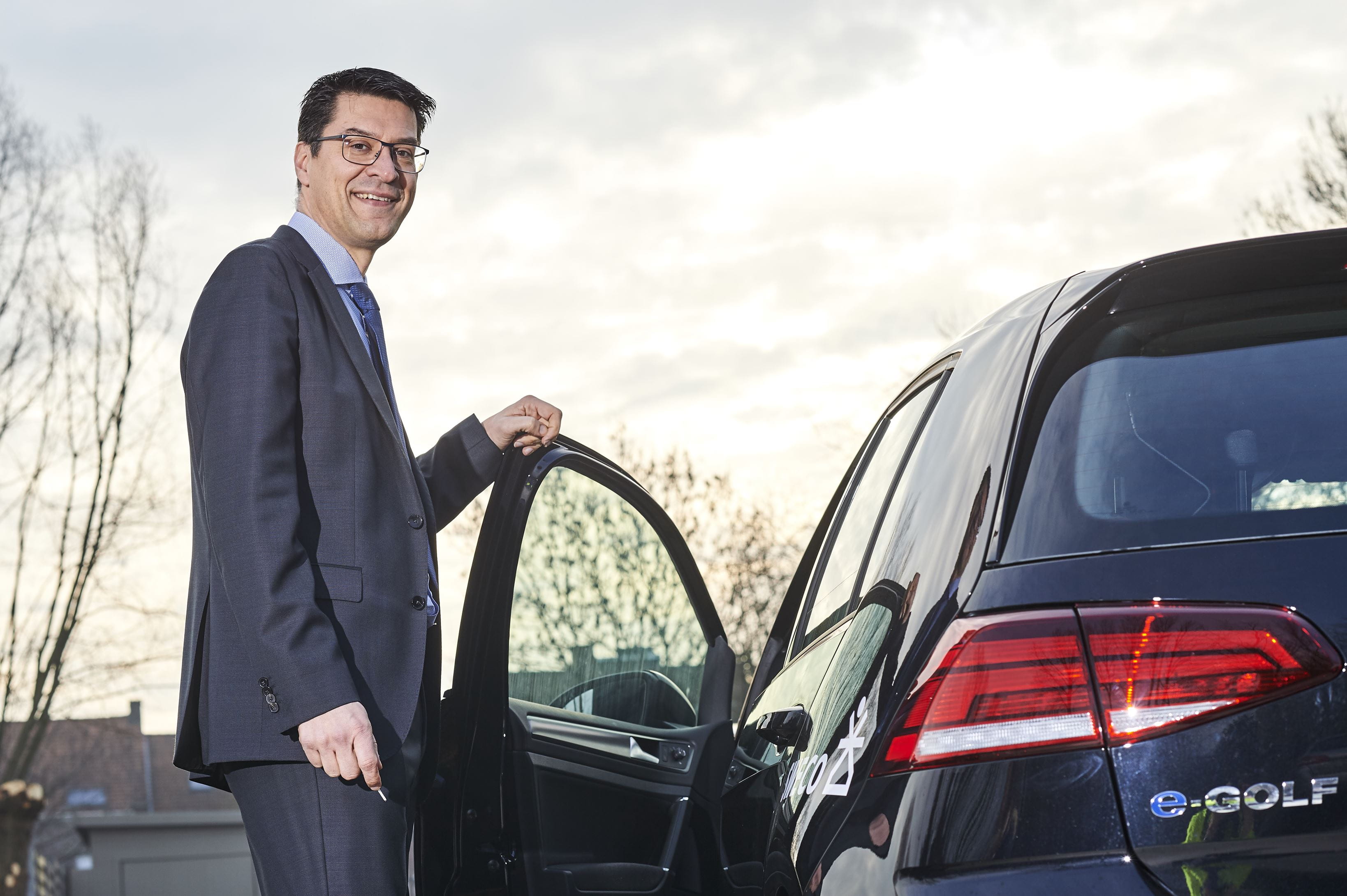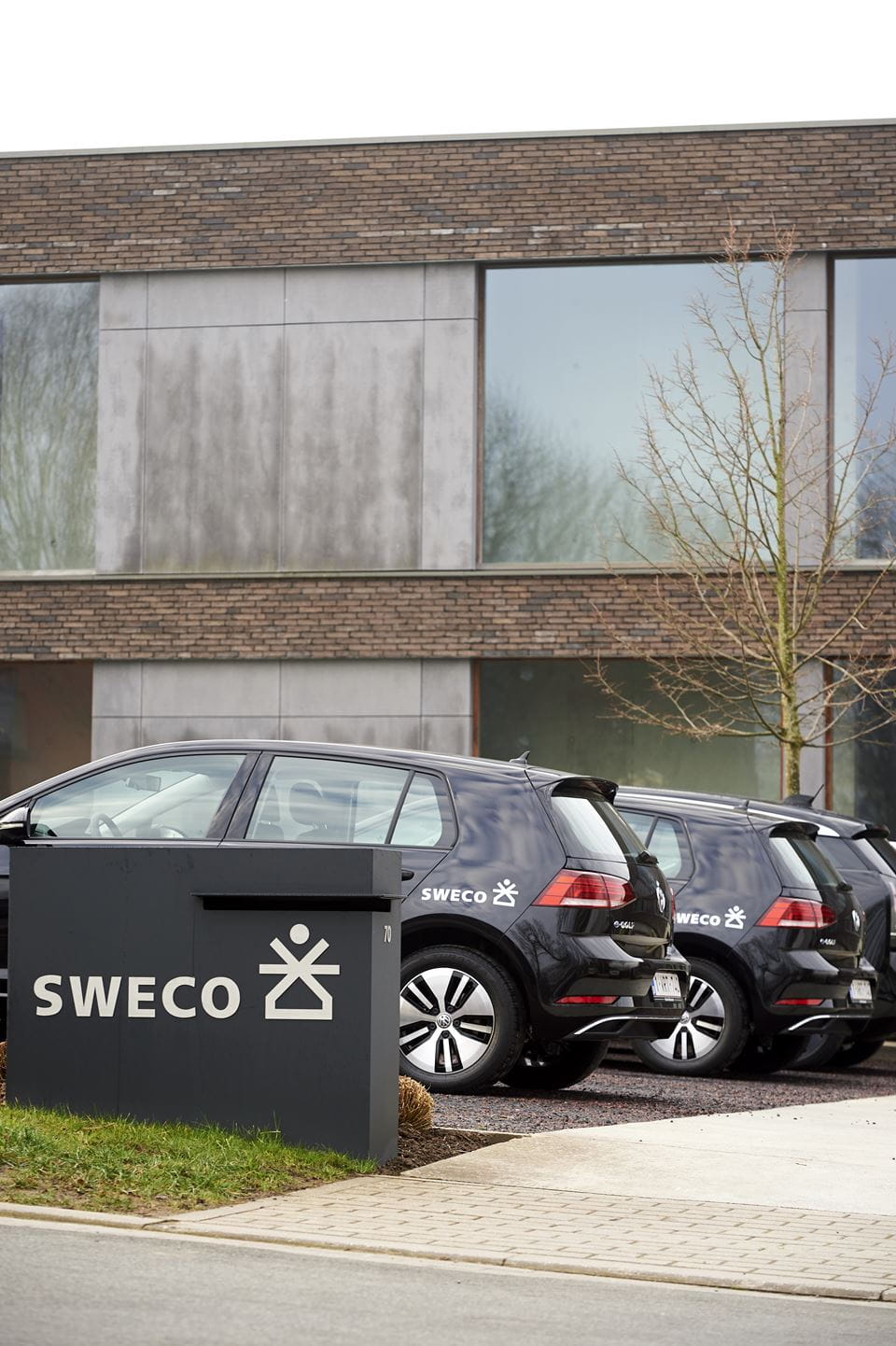What is the current distribution of electric cars and cars with conventional combustion engines in your fleet?
We currently have about 10 electric cars in our total fleet of 500 commercial vehicles, but there are a lot of them coming soon. I am convinced that 1/4th to 1/3rd of the new orders will be electric from now on, and within four or five years that will hopefully have evolved to 100 percent.
**
What are the reactions of the first changeovers?**
Those who have already made the switch are wildly enthusiastic. Of course, these are the real believers and early adopters who are making the switch based on a great deal of commitment. But even those who hesitated and eventually took the step to an electric car, say afterwards that it's just a new way of thinking. As is the case with your mobile phone, you systematically need to recharge your batteries. But once you're used to it, it's very pleasant to drive electrically.
Did you make the switch yourself?
My switch is planned once the lease contract for my current company car has expired at the end of this year. Now, I'm busy looking at which car it will be. Of course, it has already been established that it will not be a hybrid, but a fully electric car.
**
Which cars can employees currently choose from?**
We'll start with the electric smart, and I think we've got about eight of them. Very popular with our employees today is the e-Golf, which I see most often ordered. Before that, the BMW i3, of which there are still a large part in the fleet, was the most popular. At the moment we're looking a little further, as the range is finally starting to grow, especially in terms of management positions. For example, the Jaguar I-PACE is certainly eligible, and the Tesla 3 might also become an option. We're still waiting for the Audi e-tron's prices, but they certainly look very promising. The same goes for the Mercedes-Benz EQC.
**
As far as the other mobility options are concerned, is a mobility apps being used for this purpose?**
Our employees can do this in a variety of ways. You can order (train) tickets here via the personnel department, but we also offer the Olympus platform for ease of use. This allows you to really evolve towards Mobility as a Service so that people can choose the best mobility solution according to the day and their type of travel. Of course, this has its limitations because a lot of employees have to be at many different locations during the working week. Thanks to the fact that most of our offices are located near large public transport hubs, the use of the train is already well established. However, the combination with other mobility solutions is certainly facilitated thanks to such apps.
**
How often is an app like Olympus currently used?**
Thanks to such a platform, we can easily map out how sustainable the movements of our employees per office are today. Of course, some offices are already a little better located than others for this purpose, and this is of course reflected in the figures. In our office in the center of Brussels, we are responsible for around 90% of all sustainable travel. For our Antwerp-Berchem office, which was opened in the summer of 2018, we made a strong commitment to sustainable mobility, and we already have a sustainable use rate of almost 50% there. This is a relatively high percentage for the area around Antwerp. In fact, we are also seeing high figures in Ghent.
**
How are employees motivated to make their trips in a sustainable way?**
Today, the company car still has a very interesting tax advantage and of course we continue to offer it to our people, more so because we still travel a lot in the construction industry. It will be difficult to ban the company car one day, and I don't believe in that either. What we want to do as a company is to make it as easy as possible for our employees to opt for sustainable mobility solutions. If you have a company car, you can also opt for a train subscription or a bicycle allowance. We try to stimulate all these things as much as possible. Of course, this costs us extra money as a company because we do not immediately get the tax benefits from it, but we strongly believe that if we motivate our people to make as many journeys as possible sustainable, this will also be the cheapest - and certainly the most sustainable - solution in the long run ...
When I talk to people working in other companies or get job applicants here, you notice that a lot of companies are currently struggling to open all the other alternatives, especially for people who drive a company car. It's a company car or everything else. As a result, everyone in the Leopold II tunnel is sitting in their company car because people are not given the opportunity to come by train. The fact that you open everything and make it easier for the employees means that they will often spontaneously opt for alternative transport solutions. It's a philosophy that we, as an entire company - and therefore also as a management - strongly advocate to stimulate this to the maximum extent towards the employees. You can already see that it is slowly beginning to penetrate every layer of the organization.
Concerning your company, it's all about an and-and story and not an or-or story.
Indeed, and the young people who start at our company are looking for that flexibility. There is no need to impose too many rules. Above all, they don't want to be cast into a straitjacket and make them choose one or the other solution. Certainly, new people are looking for the greatest possible form of flexibility, also in the field of mobility.
**
Do sacrifices have to be made in other areas if this flexibility is chosen?**
No, it's just a bonus. For example, we also have a flex income plan of which the company car can be a part. This means that a conscious choice can be made to omit these, which increases the gross salary: the start of a mobility budget, as it were. However, the tax advantage of the company car is still so great that the gross compensation that can be set off against it is often not always so positive, even if you also offer all the other mobility solutions. We are therefore very curious about the way in which this will evolve in the coming years.
COPYRIGHT PHOTOS Jurgen Dooms




